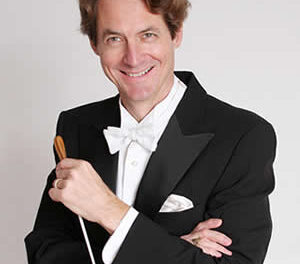Till just a few years ago, one could describe the locus of organ recitals in the Triangle in a single word: Duke. Then Raleigh’s Edenton Street United Methodist Church launched a series to celebrate its new Letourneau organ, and things brightened considerably. And an admirable series of luncheon programs is offered by the Chapel of the Cross, in Chapel Hill. (There’s also an endowed organ chair at the NC Symphony, but it would be unwise to “wait for the State to do it” there because there’s no instrument in Meymandi Concert Hall….) All that said, there are several fine organs in churches in downtown Raleigh, and there’s an active local chapter of the AGO (American Guild of Organists), so it’s long been a puzzlement that there’s been no regular series embracing the capitol square houses of worship.
With this in mind, the recent announcement of a recital at Sacred Heart Cathedral by Iowa-based Gregory Hand generated more than a little excitement, for several reasons. For openers, Sacred Heart hasn’t exactly been a bastion of community outreach, musically speaking, for many moons. (As it happened, there were two concerts there in four days, of which Hand’s program was the second, so perhaps the cathedral’s music director, Thomas Fielding, aims to increase Sacred Heart’s engagement with the city’s music lovers.) And second, the program was a remarkable admixture of bits of this and that, some components of which are exceedingly rare.
Hand is Assistant Professor of Organ at the University of Iowa. His doctorate is from the University of Michigan (James Kibbie was his teacher there), and his prior service was at Northwestern. He’s young, he’s energetic, and he’s good, and he’s also extending his organ work beyond the norm, to include engagements in opera and in the early music world.
In Raleigh, Hand’s program include movements from sonatas by Elgar and Whitlock, chorale preludes by Brahms, an “improvisation” by Tournemire as transcribed by Duruflé, and a substantial offering of music from William Bolcom’s Gospel Preludes (which the artist will be recording later this year).
The Elgar alone should have been enough to draw a crowd. You’d have thought that the good English Catholic would have done lots of organ music, especially given that his father played the instrument, but there are just a few pieces, and the Sonata in G, Op. 28 (1895), is far and away the biggest. That may explain why only the first movement was played – had Hand done it all, there’d have been no time for anything else. It was an amazing eight or nine minutes, to be sure, of music that is virtually symphonic in scope. True, it meanders a good bit, but then so, too, do Elgar’s symphonies. The Cathedral’s excellent Reuter instrument – the stop list was included in the printed program – responded admirably to Hand’s wide-ranging dynamic demands, and the artist made a thoroughly convincing case for the score, prompting hope that the entire piece will at some point be heard here.
The inclusion of a movement from a sonata by Percy Whitlock (1903-46) was a nice touch, for the relatively obscure English organist and composer’s conservative idiom proved to be a good match for the Elgar. From that to two of Brahms’ Choral Preludes (nos. 4 and 5 of Op. 122) proved not too much of a stretch, stylistically. These works are somewhat better known here than most of the rest of the program, thanks to performances at Duke (and a recording of the complete set by Robert Parkins, whose advocacy did much to introduce the music in the Triangle).
The last piece on the first half was Duruflé’s remarkable Tournemire transcription, the genesis of which was admirably described in Hand’s brief but erudite program notes. Apparently the older man cared little for recording or recordings but permitted a few of his improvisations to be taken down. Working from a 78 r.p.m. disc, Duruflé then transcribed the music, producing a score that mirrors the amazing inventiveness and technical prowess of his teacher. Here’s a work that truly merits the appellation “tour de force,” particularly as realized on this occasion by the equally remarkable Gregory Hand!
The second half of the program was devoted to excerpts from William Bolcom’s Gospel Preludes – specifically “What a Friend We Have in Jesus” and “Just as I Am” from Book I, “Amazing Grace” from Book II, and “Sweet Hour of Prayer” and a “Free Fantasia on ‘O Zion Haste’ and ‘How Firm a Foundation’” from Book IV. Bolcom’s sort of a musical chameleon, and one would be hard-pressed to describe his “style.” He’s somewhat Ivesian, but generally people don’t laugh at the results, for they’re not outrageous juxtapositions of incongruent musical elements. That said, some of these Gospel Preludes range pretty far afield from the tunes that inspired them, so a recording might well be the best way to get to know them. Several CDs are available, but based on Hand’s enthusiastic and inspiring renditions I suggest that the wait will be worthwhile in this instance.
The sound in the Cathedral was splendid, aside from the somewhat intrusive air conditioning roar experienced in the first half – clearly the organ does better than the Cuarteto Latinoamericano, partially occluded by reverberation on the evening of October 9. Still, it’s wonderful to have Sacred Heart back in the concert business, and here’s hoping for many more evenings of music there in the months to come. Next up: The Schola Cantorum of Raleigh on November 14, at 5:30 p.m. We’ll run details in our calendar in the near future.












